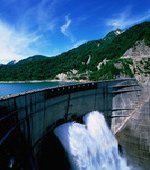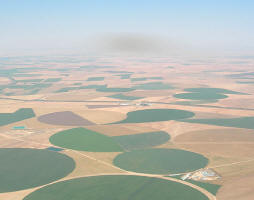 Follow-up Discussion at ECOSOC on the Global Platform for Disaster Risk Reduction
Follow-up Discussion at ECOSOC on the Global Platform for Disaster Risk Reduction
Two side-events on the follow-up to the implementation of the Hyogo Framework for Action (HFA) as
discussed at the Global Platform took place at this year’s Economic and Social Council (ECOSOC) session, held in Geneva. “The Global Platform is meant to be a venue for exchanging experiences, retaining lessons learned, and monitoring the HFA’s implementation,” explained Margareta Wahlström, Assistant Secretary-General for Humanitarian Affairs representing the Chair of ISDR system and the GP/DRR, at the first event.
“The main challenge – she added – is to communicate the importance of disaster risk reduction to those that are not yet ‘converted,’ which is why it is crucial to prove that change and improvements are possible”. Sálvano Briceño (UN/ISDR secretariat) welcomed increasing commitments to the ISDR system, which should build on this momentum not only to generate further consultations with governments and partners, but also to initiate a movement at the regional level. In this spirit, panellists representing different stakeholders of ISDR system reiterated their commitment to the HFA and to the GP/DRR: Miguel Bermeo (UNDP/BCPR) stressed the support of BCPR agencies to the ISDR system through the intensification of partnerships as well as the promotion of specific areas such as engendering disaster reduction. Furthermore, Maryam Golnaraghi (WMO) promoted Early Warning Systems as a key tool for climate change response. Marcus Oxley, Chair of the Global Network of NGOs, called upon genuine action by reiterating the importance of bringing grassrootslevel people into the process. Finally, Yvette Stevens ( Drought Risk Reduction Network) noted the need to
bring down legislative barriers and improve networking between stakeholders.
The second side-event co-chaired by H.E. Ambassador Mr Makio Miyagawa, Permanent Mission of
Japan, and Mr John Holmes, Under Secretary- General for Humanitarian Affairs, focused more on the
progress made in implementing the Hyogo Framework for Action. Lorna Inniss (Government of Barbados) informed that “Barbados is developing strong links with national disaster coordinators and regional disaster management agencies: regional collaboration is flourishing towards the establishment of a Caribbean Tsunami Warning Centre and an Interim Tsunami Information Centre.” Martin Owor (UN/ISDR Africa), on behalf of Madagascar, outlined the progress made at national level in mainstreaming disaster risk reduction into the National Poverty Reduction Strategy. Ibrahim Osman (IFRC) explained that IFRC is scaling-up and refining existing projects for the implementation of the HFA on the basis of experiences drawn by various countries. Saroj Kumar Jha (World Bank/GFDRR) illustrated how the World Bank GFDRR’s strategic framework for assistance could be an enabling financing instrument for the implementation of the HFA. Miguel Bermeo, Chair of the International Recovery Platform (IRP), informed of the efforts to provide for common post-disaster need assessment and web-based information-sharing tools, complemented with additional information on the collaboration between ILO, UNDP, FAO, UN/ISDR and WB to support local
authorities and stakeholders in the adoption of measures for a quick livelihood recovery process.
| Contact information |
Mr. Marcus Oxley
(email: marcus.oxley@tearfund.org) |
|---|---|
| News type | Inbrief |
| File link |
http://www.iisd.ca/download/pdf/sd/ymbvol141num1e.pdf |
| Source of information | Global Platform |
| Subject(s) | RISKS AND CLIMATOLOGY |
| Geographical coverage | Switzerland |
| News date | 08/08/2007 |
| Working language(s) | ENGLISH |
 you are not logged in
you are not logged in





